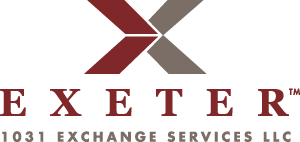Comments Regarding New Hampshire Declaratory Ruling 7707 6-2002
Use of Disregarded Entities May Cause Section 1031 Exchange to Fail for New Hampshire State Income Tax Purposes
The State of New Hampshire's Department of Revenue takes the position under New Hampshire Declaratory Ruling 7707 that if (1) you sell property held in a single-member limited liability company or other entity, which is disregarded for federal tax purposes (a disregarded entity), and (2) you acquire replacement property in a different disregarded entity, your 1031 exchange fails for State of New Hampshire income tax purposes.
All disregarded entities, including single-member limited liability companies, disregarded limited partnerships, and grantor trusts doing business in the State of New Hampshire with gross income in excess of $50,000 are required to report and pay business profits tax. Because the business profits tax is assessed on an entity by entity basis, the State of New Hampshire asserts that in order for you to enjoy tax-deferred exchange treatment, the same disregarded entity that sold the relinquished property must subsequently purchase the replacement property.
This position may mean that several common income tax strategies and business planning techniques may inadvertently cause you to lose the tax-deferred exchange benefit for State of New Hampshire business profits tax purposes. For example, if you sell property owned by one disregarded entity and for business or liability reasons you acquire replacement property in a different disregarded entity, you may be required to recognize gain in the disregarded entity that sold the relinquished property.
It is unclear whether this position would apply to disregarded entities organized outside of the State of New Hampshire or to disregarded entities that only hold out-of-state property. However, the State of New Hampshire is likely to assert that this position does apply to these situations. In addition, State of New Hampshire residents exchanging out-of-state assets may find themselves subject to these rules.
Further, it is possible that this rule would apply if, rather than transferring or acquiring a deed in the underlying relinquished or replacement property, you transferred or acquired a 100 percent interest in a disregarded entity. The IRS has held numerous times that the transfer/receipt of a 100 percent interest in a disregarded entity in a 1031 exchange is the same as the transfer/receipt of the underlying asset. Accordingly, transfers of interests in disregarded entities for 1031 exchange transactions are commonplace, especially in the context of acquiring parked replacement property from an EAT in a reverse 1031 exchange under Rev. Proc. 2000-37.
Qualified Intermediaries, exchangers and their advisors subject to New Hampshire business profits tax are advised to use caution when exchanging properties held by an entity including a disregarded entity.
